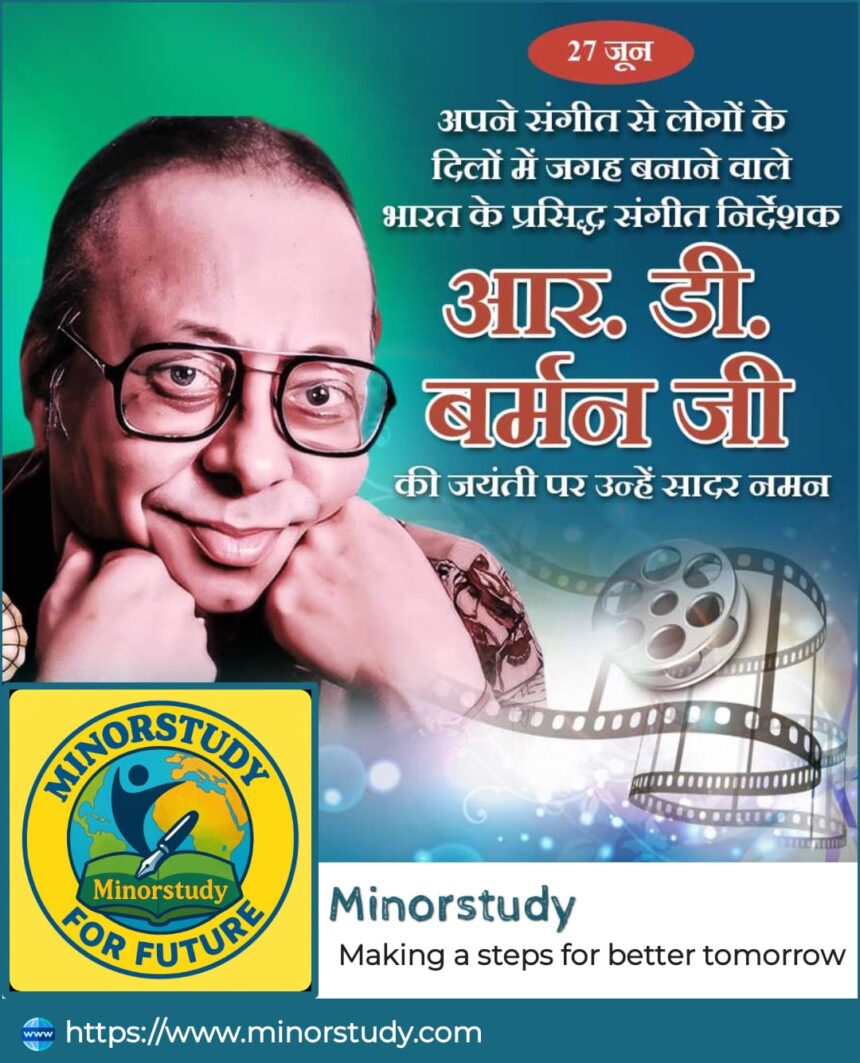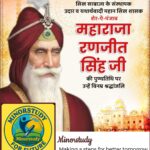11 Heart-Touching Facts About R. D. Burman Ji That Prove He Was India’s Musical Magician
R. D. Burman Ji: Few names in Indian music evoke as much affection, nostalgia, and admiration as R. D. Burman Ji, fondly known as Pancham Da. With a legacy that changed the soundscape of Indian cinema forever, R. D. Burman was more than a music director—he was an emotion, an innovator, and a timeless genius. This comprehensive tribute explores his history, lesser-known facts, significance, timeline, impact on daily life, and why he still matters in society today.
- 11 Heart-Touching Facts About R. D. Burman Ji That Prove He Was India’s Musical Magician
- 🎵 History of R. D. Burman Ji – The Melody Maker of Generations
- 📌 Important Facts About R. D. Burman Ji
- 📆 Timeline of R. D. Burman Ji’s Musical Journey
- ❓ FAQs About R. D. Burman Ji
- 🌟 Significance of R. D. Burman Ji in Indian Society
- 💐 Wishing a Musical Salute to Pancham Da
- 🎧 Impact of R. D. Burman Ji in Our Daily Lives
- 🎙️ Key Contributions and Highlights
- 🕯️ Observance and Tribute to His Artistry
- 🧠 Lessons We Can Learn from R. D. Burman Ji
- 🎼 Passion Never Goes Out of Tune
- 🎼 Innovation is Risky but Rewarding
- 🎼 Music Is a Universal Language
- 🎼 Silence and Sound Are Both Music
- ✅ Why R. D. Burman Ji’s Legacy Is Important to Society
- 🧾 Conclusion – The Unfading Echo of R. D. Burman Ji’s Music
🎵 History of R. D. Burman Ji – The Melody Maker of Generations
R. D. Burman Ji was born as Rahul Dev Burman on 27 June 1939 in Calcutta (now Kolkata). He was the only son of S.D. Burman, another legendary music director, and Meera Dev Burman, a lyricist. Nicknamed “Pancham”, he began composing at a young age and eventually became one of India’s most iconic music composers, blending Indian classical, Western, and world music like no one else.
He introduced a modern sound to Bollywood that didn’t just appeal to youth but also to those who sought depth, experimentation, and heartfelt emotion in melodies.
📌 Important Facts About R. D. Burman Ji
| Category | Details |
|---|---|
| Full Name | Rahul Dev Burman |
| Nickname | Pancham Da |
| Birth | 27 June 1939, Kolkata |
| Death | 4 January 1994, Mumbai |
| Parents | S.D. Burman (Father), Meera Dev Burman (Mother) |
| Debut as Composer | Chhote Nawab (1961) |
| Most Iconic Hits | Mehbooba Mehbooba, Piya Tu Ab To Aaja, Chura Liya Hai Tumne, etc. |
| Frequent Collaborators | Kishore Kumar, Asha Bhosale (his wife), Lata Mangeshkar |
| Genres Explored | Indian classical, jazz, rock, disco, funk, Latin, folk |
| Total Films Composed | Over 300 films |
| Awards | 3 Filmfare Awards (posthumously), multiple nominations |
📆 Timeline of R. D. Burman Ji’s Musical Journey
| Year | Milestone |
|---|---|
| 1939 | Born in Kolkata |
| 1956 | Composed “Ae Meri Topi Palat Ke Aa” (used later in his father’s film) |
| 1961 | Debut as independent composer in Chhote Nawab |
| 1971 | Massive success with Hare Rama Hare Krishna, Caravan, Amar Prem |
| 1975 | Sholay score, “Mehbooba Mehbooba” creates history |
| 1980s | Creative peak with experimental sounds in Love Story, Satte Pe Satta |
| Late 1980s | Phase of decline due to changing industry trends |
| 1994 | Passed away shortly after 1942: A Love Story soundtrack released |
❓ FAQs About R. D. Burman Ji
Q1: Why was he called “Pancham Da”?
It is said that as a child he used to cry in the fifth note (Pancham) of the musical scale, hence the name. Some also say actor Ashok Kumar coined it.
Q2: Was he influenced by Western music?
Yes, but creatively. He blended Western jazz, disco, funk, and rock with Indian classical to produce a totally original sound.
Q3: Was R. D. Burman underrated in his lifetime?
Yes, especially in the late 1980s. Though he was a genius, many of his iconic creations were appreciated more after his death.
Q4: Which singers did he work best with?
He shared an extraordinary bond with Kishore Kumar, Asha Bhosale, and Lata Mangeshkar—some of Bollywood’s greatest voices.
Q5: What’s his legacy today?
His music is timeless, played at weddings, clubs, spiritual gatherings, and even studied in music schools.
🌟 Significance of R. D. Burman Ji in Indian Society
R. D. Burman Ji is not just a music director, but a cultural icon who defined the sound of multiple generations. His music represented joy, heartbreak, rebellion, romance, and everything in between.
His Musical Legacy Represents:
The golden era of Bollywood.
A perfect fusion of Indian soul and Western rhythm.
Innovation at a time when film music followed formulas.
Emotion that connects across language and time barriers.
He could create a ghazal with as much ease as a cabaret number, a quality unmatched to this day.
💐 Wishing a Musical Salute to Pancham Da
“To the one who gave soul to sound and rhythm to romance—R. D. Burman Ji, may your melodies forever echo in our hearts.”
Each beat, each song, each tune he created was infused with passion—a true gift to the world of music.
🎧 Impact of R. D. Burman Ji in Our Daily Lives
Even today, his influence is present in:
Film background scores
Modern remix culture (many songs are still remixed today)
Television serials and reality shows
Wedding playlists, road trips, and late-night nostalgia sessions
YouTube covers and global music tributes
His music is multigenerational. Grandparents, parents, and children still hum his tunes.
🎙️ Key Contributions and Highlights
First to use the mouth organ in Bollywood (Hai Apna Dil To Awara).
Blended tabla with jazz drumming, creating unique percussion layers.
Used unconventional instruments like bottles, combs, and cups.
Introduced Latin rhythms into Hindi film songs (Piya Tu Ab To Aaja).
Partnered with Asha Bhosale to deliver unforgettable romantic and peppy tracks.
Composed the entire background score of Sholay, considered one of India’s greatest.
Created the most iconic romantic ballads in 1942: A Love Story.
🕯️ Observance and Tribute to His Artistry
Pancham Foundation holds events and concerts.
His birth anniversary (27 June) is celebrated with musical tributes.
Top musicians like Shankar–Ehsaan–Loy, A.R. Rahman, and Vishal–Shekhar cite him as an influence.
Streaming platforms regularly curate playlists dedicated to his magic.
🧠 Lessons We Can Learn from R. D. Burman Ji
🎼 Passion Never Goes Out of Tune
Even when the industry sidelined him, he kept composing—his best work came when he was ignored the most.
🎼 Innovation is Risky but Rewarding
From jazz to disco, he risked it all and changed everything.
🎼 Music Is a Universal Language
He created songs that cross linguistic, regional, and generational divides.
🎼 Silence and Sound Are Both Music
He used pauses, echoes, and space in music as creatively as instruments.
✅ Why R. D. Burman Ji’s Legacy Is Important to Society
Broke monotony in the music industry.
Inspired thousands of composers, from Bollywood to global music scenes.
Became a benchmark for originality and creativity.
Helped Indian cinema evolve globally with modern musical standards.
🧾 Conclusion – The Unfading Echo of R. D. Burman Ji’s Music
Even three decades after his passing, his music lives on like a heartbeat in Indian culture. Whether it’s a party, heartbreak, monsoon evening, or a patriotic march—there is always a Pancham Da song that fits the moment.
He was the soundtrack of an era, and still remains the heartbeat of our emotional moments.
“R. D. Burman Ji didn’t just compose music—he composed memories.”








